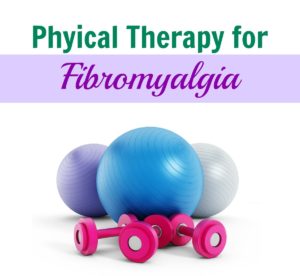Fibromyalgia – Causes, Diagnosis and Treatment

What is Fibromyalgia and can it be treated?
Fibromyalgia is known as a condition that causes pain in your joints and muscles as well as all over fatigue. Although it is the second most common health issue regarding muscles and bones, it is commonly misdiagnosed.
In spite of the fact that this condition is so common, the medical experts are yet to find a cure. If you do suffer from this disease, right now there is no medical cure.
However, sufferers still live a relatively normal and healthy life with fibromyalgia. Through a combination of healthy living, good diet and medication, symptoms can be managed in such a way as to reduce the worst effects of stress and pain.
Common causes of fibromyalgia
Although the full medical explanation for fibromyalgia is not yet available, the experts are of the view that this condition may be caused by a sudden miscommunication between the brain and the spinal cord. The problem of fibromyalgia commonly appears when the brain incorrectly processes the pain signals coming from your nerves.
The following factors may increase your chances of getting fibromyalgia:
- If you have been physically or mentally abused
- If you are a female
- When you have mode swings
- You already have arthritis or any other such condition
- You do not exercise in routine
- A family history of the illness
Common symptoms of fibromyalgia
 The dominant symptom of fibromyalgia is that you feel acute pain in your body. However, there are many other symptoms which are as follows:
The dominant symptom of fibromyalgia is that you feel acute pain in your body. However, there are many other symptoms which are as follows:
- Stiffness of muscles
- Low tolerance to pain
- Extreme fatigue
- Insomnia
- Having trouble in concentrating on anything also known as the “Fibro Fog”
- Depression
Although all the symptoms of fibromyalgia are very much like that of osteoarthritis, tendinitis, and bursitis, there is a slight difference.
In fibromyalgia, instead of having pain in a specific area, the pain and the arduousness could run through the whole body.
Along with the major signs, other indicators of fibromyalgia may include:
- Extreme upset stomach causing stomach ache, constipation, bloating and diarrhoea
- Unremitting headache
- Drying out of eyes, nose, and mouth
- Uncontrolled bladder
Having a feeling of numbness in your whole body including hands, feet, legs face and arms.
Common fibromyalgia diagnosis
You cannot confirm fibromyalgia through a test – no such test exists. However, if you want to confirm your conditions, then go to the doctor with all your medical history.
Most of the time we do have to face the situation where even the doctor rules out the possibility of having fibromyalgia. After the complete medical check, if the doctor is still unable to find any sound reason for your symptoms, then he goes for a two-part scoring technique. In this technique, he measures the spreading of the pain and how bad the symptoms are.
Common fibromyalgia treatments
 The treatment that the doctor may approve for you depends on the severity of the ailment. The most common drugs, specifically for the fibromyalgia pain include:
The treatment that the doctor may approve for you depends on the severity of the ailment. The most common drugs, specifically for the fibromyalgia pain include:
- Milnacipran (Savella)
- Duloxetine (Cymbalta)
- Pregabalin (Lyrica)
One more thing to keep in mind is that painkillers are not the best way to control the disease.
Painkillers only provide short-term relief and prolonged use may cause other health problems. They may also be addictive, in the case of opioids and related products.
What about physical therapy?
 Some chiropractors and physiotherapists work with fibromyalgia suffers in order to keep their bodies moving. A chiropractor may adjust your spine in order to maximise the communication between your nerves, through you spinal cord and up to your brain.
Some chiropractors and physiotherapists work with fibromyalgia suffers in order to keep their bodies moving. A chiropractor may adjust your spine in order to maximise the communication between your nerves, through you spinal cord and up to your brain.
An alternative is to make your routine healthy. Regular exercise is one the best things against such conditions. You can choose from a variety of exercises for the one that suits you the most. Another fantastic benefit of regular exercise is that it releases the stress oppressing hormone known as endorphins. It also helps you to have a good night sleep as well.
Along with regular exercise, you can also go for other therapies like massage, chiropractic manipulation and acupuncture to ease out the stresses and relieve the pain.
Of course, you should consult with your G.P if you have questions or are concerned about fibromyalgia.